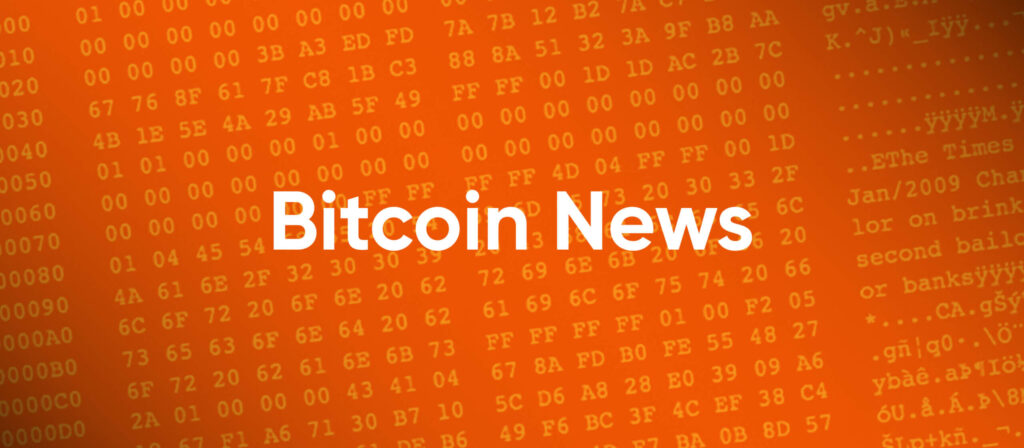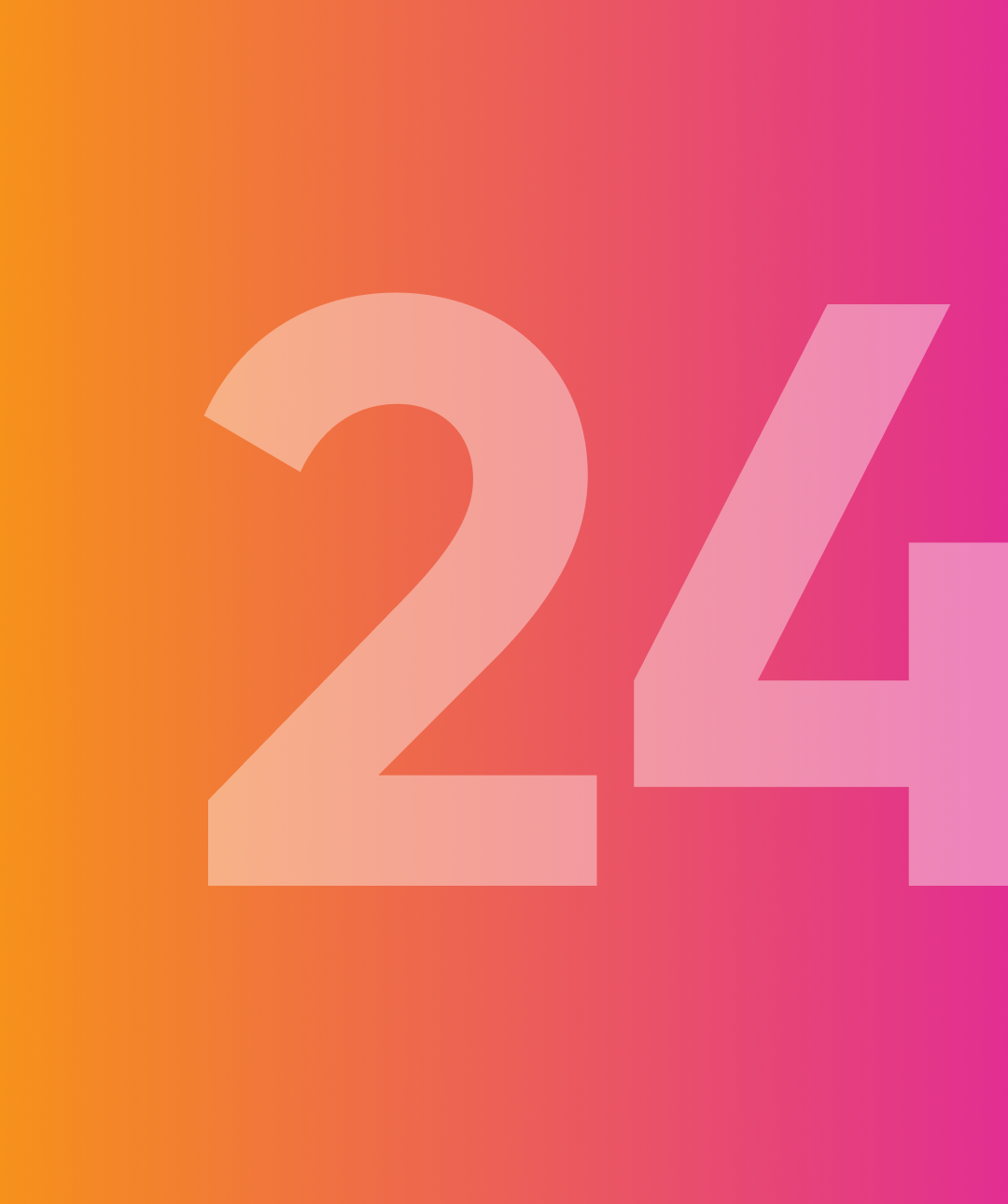The Financial Freedom Report is a newsletter focusing on the role currency and banking play in the civil liberties and human rights struggles of those living under authoritarian regimes. We also spotlight new tools and applications that can help individuals protect their financial freedom.
Good morning, readers!
This week in Russia, Vladimir Putin’s “reelection” for a fifth term underscores a deepening authoritarian regime, characterized by stringent control over the financial system and harsh crackdowns on dissenters — a far cry from his pledge to “preserve and develop democracy” when first assuming office in 2000. Meanwhile, in Nigeria, the central bank’s imposition of new levies on domestic money transfers adds to existing economic hardships, increasing transaction costs for citizens grappling with high inflation and global financial isolation.
In Rwanda, the National Bank’s pursuit of a retail CBDC to supplant cash raises concerns over privacy and financial autonomy, particularly under an authoritarian regime known for the arbitrary detention of journalists and activists and the targeting of political opponents.
In the world of open-source money, four new proposed upgrades were officially assigned Bitcoin Improvement Proposal (BIP) numbers, reflecting their viability in Bitcoin’s future technological development and the ongoing innovation of the protocol.
We end with the latest edition of the Freedom Tech series (an educational partnership between HRF and Pubkey), featuring HRFs own chief strategy officer, Alex Gladstein, who discusses Bitcoin as a critical tool for promoting financial freedom and human rights, particularly in regions suffering from corruption, economic mismanagement, and authoritarian control.
Now, let’s dive right in!

Russia | Slides Further into Authoritarianism Amid Grueling Financial Repression
Last week, Vladimir Putin was inaugurated for his fifth consecutive term as Russia’s president, despite constitutional limits that originally allowed only two consecutive terms. Throughout his 24-year reign, Putin has employed various tactics — such as financial surveillance and repression — to silence opposition and control public opinion. Notably, the regime debanked and seized the assets of opposition leader and activist Alexei Navalny, who was murdered in prison shortly before the presidential elections. With his reelection, Putin will no doubt continue consolidating power and control over the populace, moving Russia toward a society with increasingly limited political and financial freedoms. Resources like 21ideas.org remain critical for Russians who want to learn how to use Bitcoin to escape Putin’s tight control over national economic activity.
Nigeria | Proposed Levy on Domestic Money Transfers Suspended
The Central Bank of Nigeria’s (CBN) plans to impose a 0.5% levy on all domestic money transfers between individuals and businesses to fund “cybersecurity” initiatives has been suspended due to Nigeria’s rising cost of living. The CBN had instructed all banks and mobile money operators to implement this charge, warning that non-compliance would result in a penalty of 2% of the institution’s annual turnover. Last month, commercial banks also initiated a 2% processing fee on cash deposits exceeding 500,000 naira ($335) for individuals and a 3% processing fee on corporate transactions above three million naira ($2,013). These measures can only raise transaction costs in an economy already struck by economic hardships such as record-high inflation, dollar shortages, and currency restrictions. Consequently, it’s no surprise that Nigeria is home to the largest peer-to-peer digital asset market worldwide, as Nigerians seek alternative ways to preserve the value of their money and participate more effectively in the global economy.
Georgia | Foreign Agents Bill Officially Passed
Georgia’s parliament has officially passed a controversial “foreign agents” bill that has received domestic and international outcry. The bill mandates that organizations (such as NGOs) receiving greater than 20% of their funding internationally must register as “agents of foreign influence” or face severe penalties. With the adoption of this new law, non-governmental organizations (NGOs) will effectively have their bank accounts under government surveillance, curtailing their ability to operate effectively and even risk being shut down if their operations misalign with state objectives. Thousands of citizens gathered to protest the bill, with critics quick to point out its resemblance to Russian laws that have been used to infringe on civil society. While the bill still needs to be sent to President Salome Zourabichvili, who promised to veto it, parliament can easily override the President’s veto with a simple majority. This legislation marks a dangerous escalation against democracy and civil liberties in Georgia, resulting in severely restricted financial freedoms for NGOs.
Rwanda | Pursuing Retail CBDC as Step Towards a Cashless Society
In pursuit of transitioning Rwanda towards a cashless society, the National Bank of Rwanda (BNR) completed its feasibility study on a retail central bank digital currency (CBDC). The use of a programmable CBDC by Rwanda’s authoritarian regime raises many concerns, especially considering the regime’s harsh and arbitrary detention of journalists and dissidents, as well as the silencing and targeting of political opponents that continue to this day. CBDCs would increase the regime’s ability to monitor and control finances, severely curtailing already endangered privacy and financial autonomy for dissidents. In the face of this trend, the Africa Bitcoin Conference will invite Rwandan participants to Nairobi this December to learn how to protect themselves from the regime’s Orwellian surveillance society.
Zimbabwe | Officials Enforce Use of New ZiG Currency
Following the tumultuous launch of its sixth currency in sixteen years, Zimbabwe’s government will introduce new measures to enforce the use of its new ZiG currency in local markets, which predominantly favor USD. Zimbabwean officials plan “to ensure that no exchange rate other than the official rate will be used for the pricing of all goods and services.” Currently, the official rate stands at 13.66 ZiG per dollar, however, street valuations can reach up to 20 ZiG per dollar, reflecting the currency’s weaker value on the free market. This divergence prompted raids from officials on street currency traders to enforce their desired exchange rate. This strict enforcement of ZiG infringes on the financial liberties of Zimbabweans, whose ability to access and use a stable and harder currency (like USD) is essential for their financial security in a country mired by repeated currency failures.
Tunisia | Hundreds Protest for Election Date and Release of Activists
In Tunisia, hundreds of protestors gathered demanding the release of detained journalists, activists, and opposition figures, alongside calling for a transparent presidential election date. Tunisian President, Kais Saied, has yet to announce a date for the upcoming presidential elections and faces further scrutiny for shutting down the elected parliament and assuming control over the judiciary in 2021. Meanwhile, there has been a wave of arrests targeting journalists, activists, and lawyers amid this political crisis. Opposition parties claim the political environment is not conducive to free nor fair elections, calling for an end to the restrictions on press and political freedoms. Absent the ability to express their views and participate in shaping the country’s future, citizens in Tunisia are left facing continued financial hardships. In an economy entrenched in stagflation, many resort to debt simply to survive, grappling with the grim reality that meaningful change seems distant as the regime prioritizes consolidating power over the welfare of Tunisians.

Bitcoin Core | Four New BIPs Assigned
This week, four new proposed upgrades were officially assigned Bitcoin Improvement Proposal numbers: BIP 347, 352, 387, and 388. BIP 347 (OP_CAT) would introduce covenants enabling the creation of more sophisticated applications, at the risk of introducing potential vulnerabilities and using excessive memory. BIP 352 (Silent Payments) would enhance Bitcoin transaction privacy by enabling senders to generate unique addresses for transactions while using a receiver’s static address. BIP 387 (Tapscript Multisig Output Script Descriptors) proposes new functions for creating tapscript-based multisig wallets in Bitcoin, while BIP 388 (Wallet Policies for Descriptor Wallets) would set more secure standards for hardware and software wallets to communicate and manage transaction addresses. While not yet activated, these BIPs are being recognized as a potential part of Bitcoin’s future development.
Lightning Labs | First Mainnet Multi-Hop Asset Payment With Taproot Asset Protocol
Bitcoin developer and Chief Technology Officer (CTO) at Lightning Labs, Olaoluwa Osuntokun, announced the completion of the first mainnet multi-hop asset payment using Taproot Asset Channels. This demonstrates the practical application of the Taproot Asset Protocol (TAP) and is a step forwards towards the ability for users to trade digital assets on the Lightning Network. With TAP, anyone can issue digital assets on Lightning’s payment rails to transfer ownership of that asset across multiple payment channels, benefiting from instant and low-cost transactions. This advancement has the potential to help improve privacy for people using stablecoins for global payments and remittances.
HRF | CISA Research Fellow Announced
HRF is pleased to announce its selection for the Cross Input Signature Aggregation Research Fellowship announced last month. Fabian Jahr, the appointed fellow and Bitcoin core contributor, will lead research into the potential for CISA to enhance privacy and provide cost savings for Bitcoin transactions. If implemented, CISA has the potential to benefit human rights activists by making it more cost-effective to send privacy-protecting payments. Jahr will provide an approachable layman’s explanation of CISA’s impact. This research and proposal will take place over the next 6 months, examining the current state and future of CISA to answer the question of whether it makes sense for Bitcoin. Jahr’s research will be documented at cisaresearch.org where readers can learn more about this potential upgrade and follow along the research process. Look out for Jahr to also make a short talk on the topic at the Oslo Freedom Forum on June 5.
Tornado Cash | Founder Sentenced to 64 months in prison
This week, a Dutch court sentenced Alexey Pertsev, the co-founder of Tornado Cash — a decentralized cryptocurrency privacy tool — to 64 months in prison for his alleged involvement in money laundering. The court pointed to Pertsev’s role in facilitating the use of Tornado Cash for illicit activities. However, Tornado Cash co-founder Roman Smenov emphasized that “it is a decentralized software protocol that no one entity or actor can control.” Either way, the targeting of this decentralized privacy tool designed to obscure transactions is the latest in a string of escalations against privacy in the digital asset space. Alex Gladstein, Chief Strategy Officer at the HRF stressed the broader implications in an interview with WIRED, stating “for human rights activists, it’s essential that they have money the government can’t surveil.”
Utreexod | Beta Release Now Available
Open-source Bitcoin developer, Calvin Kim, announced the beta release of utreexod, a Bitcoin full node implementation using utreexo accumulators. The utreexod node implementation offers advantages over traditional nodes including immediate bootstrapping, reduced memory usage, and significantly lower disk space requirements. A unique feature of utreexod nodes is the ability to immediately finish the initial block download (IBD) of the Bitcoin blockchain — the process by which new nodes join the network. This saves time and bandwidth while maintaining the same trust assumptions. HRF is delighted to support Calvin in his efforts to scale Bitcoin.
Emessbee | Unstoppable Coinjoins With No Coordinator
During the bitcoin++ developer conference in Texas, Bitcoin developer Super Testnet unveiled Emessbee, a novel way to conduct coinjoins without a central coordinator. Emessbee enables decentralized coinjoins, where multiple users combine their transactions into one to obscure the original sources and destination of funds, thus improving privacy. Instead of relying on a central coordinator, Emessbee uses a public bulletin board, such as Nostr, to exchange messages. While promising, developers need to do more work. Emessbee remains proof-of-concept and currently lacks mechanisms to prevent Denial of Service (DoS) and Sybil attacks, where malicious actors could flood the system with fake identities. You can learn more about Emessbee in this demo.
RoboSats | Revamped Android App
Robosats, a platform that facilitates private peer-to-peer (P2P) bitcoin exchanges using the Lightning Network, released its latest version, heralding the return of its Android app. The release introduces a revamped Android app that now serves as the optimal means of utilizing RoboSats. It functions as a fully self-hosted client and ensures connectivity to all RoboSats coordinators. Other improvements include torified networking by default as well as minor bug and coordinator fixes. Through its decentralized, private, and P2P platform, RoboSats provides a way for activists and citizens worldwide to access neutral, censorship-resistant, and inflation-free money. HRF is proud to support this open-source project in getting freedom money into the hands of those who need it most.
BOLT12 | New Payment Protocol for the Lightning Network
The release of BOLT12, a new payment protocol for the Lightning Development Kit (LDK) promises increased privacy, security, and usability for Lightning. BOLT12 makes several key improvements. For starters, BOLT12 uses “offers” which are precursors to invoices that enable reusable payment codes without a dedicated server. This allows for a static QR code when receiving payments, particularly useful for activists and merchants. Offers may also contain blinded paths, where nodes along the payment route are blinded using advanced cryptography, thereby preventing the exposure of sensitive payment information. While still early in adoption, BOLT12 promises more private and autonomous payments and addresses the issue of receiving payments offline, offering a more efficient, versatile, and private Lightning Network.
Recommended Content
Alex Gladstein: Bitcoin as a Tool for Freedom
In the latest edition of the Freedom Tech series (hosted by HRF and Pubkey), Alex Gladstein, chief strategy officer of HRF, highlights Bitcoin as a tool for freedom in authoritarian regimes and the role of privacy as a cornerstone of financial freedom. He explains how Bitcoin provides financial sovereignty and a means of circumventing restrictive financial systems, particularly in the context where traditional systems fail or exclude certain groups, such as women living under Taliban rule in Afghanistan. The discussion also covers the upcoming Oslo Freedom Forum, an annual event taking place on June 3-5 that gathers activists, dissidents, and reformers to discuss and share ideas on combating tyranny and authoritarianism worldwide. Throughout the conversation, it is evident that Gladstein views Bitcoin not as a speculative asset but rather as a critical tool for promoting financial freedom and human rights, particularly in regions suffering from corruption, economic mismanagement, and authoritarian control. You can watch the full conversation here.
The Power of Bitcoin with Gloria Zhao
In a new episode of the What Bitcoin Did podcast, Gloria Zhao, a Bitcoin Core maintainer, offers an in-depth examination of the rigorous security protocols and community-driven processes that characterize the maintenance of the Bitcoin Core codebase. Zhao explains how many checks and balances prevent unilateral changes to the core codebase. For instance, all code changes require PGP signatures (cryptographic verification using digital signatures) to ensure the accountability and authenticity of all contributions. She also shares her journey from a computer science student at Berkeley to a prominent figure in Bitcoin development, discussing the unique challenges and the broader impact of open-source culture on technology. HRF was pleased to support Gloria’s efforts in a past grant and applauds her broader educational initiatives such as the Bitcoin Core Review Club and London BitDevs. This episode is a must-listen for anyone interested in the inner workings of Bitcoin’s technology, security, and collaborative innovation.
Oslo Freedom Forum | Reserve Your Spot
Human rights advocates from around the globe will take the Oslo Konserthus stage on June 3-5, 2024, to share their efforts to defy repression and speak out against injustice. This year’s theme, Reclaim Democracy, emphasizes the pivotal role every individual plays within the global movement for democracy. The Financial Freedom team is looking forward to creating a program track exploring the role open-source money plays in preserving our human rights and civil liberties. Use the code 2024OFF to get an early bird discount on your ticket.
If this email was forwarded to you and you enjoyed reading it, please consider subscribing to the Financial Freedom Report here.
Support the newsletter by donating bitcoin to HRF’s Financial Freedom program via BTCPay.
Want to contribute to the newsletter? Submit tips, stories, news, and ideas by emailing [email protected].
Purchase your ticket to the 2024 Oslo Freedom Forum, taking place June 3-5 in Oslo, Norway. Use the code 2024OFF to get an early bird discount.
The Bitcoin Development Fund (BDF) is accepting grant proposals on an ongoing basis. The Bitcoin Development Fund is looking to support Bitcoin developers, community builders, and educators. Submit proposals here.









